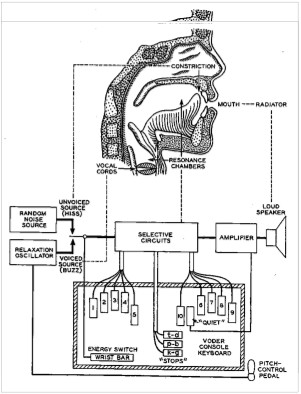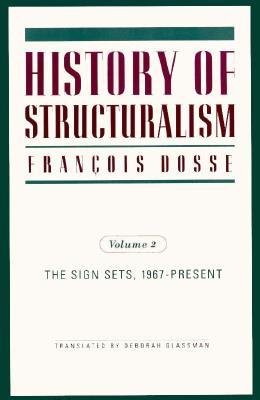François Cusset: French Theory: How Foucault, Derrida, Deleuze, & Co. Transformed the Intellectual Life of the United States (2003–) [FR, EN]
Filed under book | Tags: · deconstruction, feminism, france, history, history of philosophy, literary theory, marxism, philosophy, politics, postmodern, poststructuralism, structuralism, theory, united states

“During the last three decades of the twentieth century, a disparate group of radical French thinkers achieved an improbable level of influence and fame in the United States. Compared by at least one journalist to the British rock ‘n’ roll invasion, the arrival of works by Michel Foucault, Jacques Derrida, Jean-François Lyotard, Jean Baudrillard, Gilles Deleuze, and Félix Guattari on American shores in the late 1970s and 1980s caused a sensation.
Outside the academy, “French theory” had a profound impact on the era’s emerging identity politics while also becoming, in the 1980s, the target of right-wing propagandists. At the same time in academic departments across the country, their poststructuralist form of radical suspicion transformed disciplines from literature to anthropology to architecture. By the 1990s, French theory was woven deeply into America’s cultural and intellectual fabric.
French Theory is the first comprehensive account of the American fortunes of these unlikely philosophical celebrities. François Cusset looks at why America proved to be such fertile ground for French theory, how such demanding writings could become so widely influential, and the peculiarly American readings of these works. Reveling in the gossipy history, Cusset also provides a lively exploration of the many provocative critical practices inspired by French theory. Ultimately, he dares to shine a bright light on the exultation of these thinkers to assess the relevance of critical theory to social and political activism today—showing, finally, how French theory has become inextricably bound with American life.”
Publisher La Découverte, Paris, 2003
ISBN 2707146730
373 pages
English edition
Translated by Jeff Fort, With Josephine Berganza and Marlon Jones
Publisher University of Minnesota Press, 2008
ISBN 0816647321, 9780816647323
388 pages
Reviews: Jennifer Ferng (Leonardo), Juliet J. Fall (Foucault Studies), Ethan Kleinberg (NPDR), Bridie Lonie (Junctures, FR).
French Theory: Foucault, Derrida, Deleuze & Cie et les mutations de la vie intellectuelle aux États-Unis. (French)
French Theory: How Foucault, Derrida, Deleuze, & Co. Transformed the Intellectual Life of the United States. (English)
Bernard Dionysus Geoghegan: The Cybernetic Apparatus: Media, Liberalism, and the Reform of the Human Sciences (2012)
Filed under thesis | Tags: · cybernetics, history of technology, liberalism, linguistics, structuralism, technology

“The Cybernetic Apparatus examines efforts to reform the human sciences through new forms of technical media. It demonstrates how 19th-century political ideals shaped mid-20th-century programs for cybernetic research and global science sponsored by the Rockefeller Foundation. Through archival research and textual analysis, it reconstructs how and why new media, especially digital technologies, were understood as part of a neutral and impartial apparatus for transcending disciplinary, ethnic, regional, and economic differences. The result is a new account of the role of new media technologies in facilitating international and interdisciplinary collaboration (and critique) in the latter half of the twentieth century.
Chapter one examines how political conceptions of communications and technology in the United States in the nineteenth century conditioned the understanding and deployment of media in the twentieth century, arguing that American liberals conceived of technical media as part of a neutral apparatus for overcoming ethnic, geographic, and economic difference in the rapidly expanding nation. Chapter two examines the development of new media instruments as technologies for reforming the natural and human sciences from the 1910s through the 1940s, with particular attention to programs administered by the Rockefeller Foundation. Chapters three and four examine the rise, in the 1940s and 1950s, of cybernetics and information theory as an ideal of scientific neutrality and political orderliness. These chapters demonstrate how programs sponsored by the Rockefeller Foundation, MIT, and other institutions shaped linguist Roman Jakobson’s and anthropologist Claude Lévi-Strauss’s efforts to redefine their fields as communication sciences. Chapter five considers how critics of cybernetics, including Noam Chomsky, Claude Shannon, and Roland Barthes, critically re-evaluated the claims of cybernetics to redefine the relations between technical research and the human sciences.”
PhD dissertation
Northwestern University & Bauhaus-Universität Weimar, 2012
262 pages
Author
Related paper by the author: From Information Theory to French Theory: Jakobson, Lévi-Strauss, and the Cybernetic Apparatus (Critical Inquiry 38, Autumn 2011)
PDF (6 MB, updated on 2021-3-9)
EPUB (2 MB, added on 2021-3-9)
François Dosse: History of Structuralism, 2 vols. (1991–) [BR-PT, EN, ES]
Filed under book | Tags: · 1940s, 1950s, 1960s, 1970s, anthropology, history, language, linguistics, literary theory, marxism, philosophy, psychoanalysis, semiotics, sociology, structuralism, unconscious


“Claude Lévi-Strauss, Roland Barthes, Jacques Lacan, Louis Althusser, Jacques Derrida, and Michel Foucault—the ideas of this group of French intellectuals who propounded structuralism and poststructuralism have had a profound impact on disciplines ranging from literary theory to sociology, from anthropology to philosophy, from history to psychoanalysis. In this long-awaited translation, History of Structuralism examines the thinkers who made up the movement, providing a fascinating elucidation of a central aspect of postwar intellectual history.
François Dosse tells the story of structuralism from its beginnings in postwar Paris, a city dominated by the towering figure of Jean-Paul Sartre. The work of Saussure became the point of departure for a group of younger scholars, and the outcome was not only the doom of Sartre as intellectual leader but the birth of a movement that would come to reconfigure French intellectual life and would eventually reverberate throughout the Western world.
Dosse provides a readable, intelligible overall account, one that shows the interrelationship among the central currents of structuralism and situates them in context. Dosse illuminates the way developments in what are usually distinct fields came to exert such influence on each other, showing how the early structuralists paved the way for later developments and for recent discourses such as postmodernism. The cast of characters related by Dosse includes those mentioned above as well as Roman Jakobson, Julia Kristeva, Pierre Bourdieu, Gilles Deleuze, Félix Guattari, Tzvetan Todorov, and many others. Chapters are devoted to major figures, and Dosse has done extensive interviews with the major and minor figures of the movement, furnishing an intellectual history in which historical players look back at the period.
This first comprehensive history of the structuralist movement is an essential guide to a major moment in the development of twentieth-century thought, one that provides a cogent map to a dizzying array of personalities and their ideas. It will be compelling reading for those interested in philosophy, literary theory, sociology, anthropology, linguistics, and psychoanalysis.”
First published in French as Histoire du structuralisme, Éditions La Découverte, Paris, 1991, 1992
English edition
Translated by Deborah Glassman
Publisher University of Minnesota Press, 1997
ISBN 0816622418, 9780816622412 & 0816623716, 9780816623716
488 & 534 pages
Publisher (EN)
História do estruturalismo I (BR-Portuguese, trans. Álvaro Cabral, 1993, added on 2024-1-20)
História do estruturalismo II (BR-Portuguese, trans. Álvaro Cabral, 1994, added on 2024-1-20)
History of Structuralism, 1: The Rising Sign, 1945-1966 (English, trans. Deborah Glassman, 1997, via falsedeity)
History of Structuralism, 2: The Sign Sets, 1967-Present (English, trans. Deborah Glassman, 1997)
Historia del estructuralismo I (Spanish, trans. María del Mar Llinares, 2004)
Historia del estructuralismo II (Spanish, trans. María del Mar Llinares, 2004)

